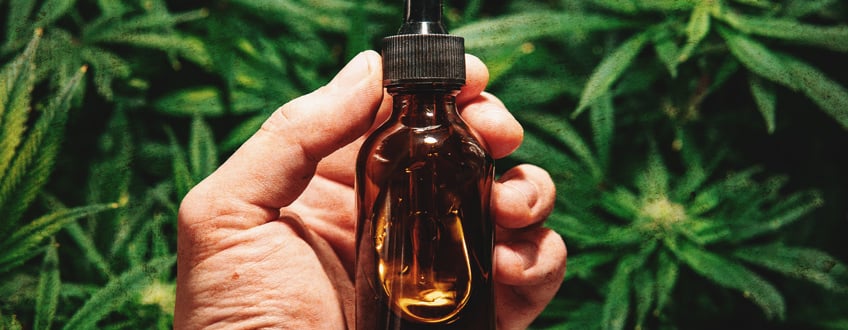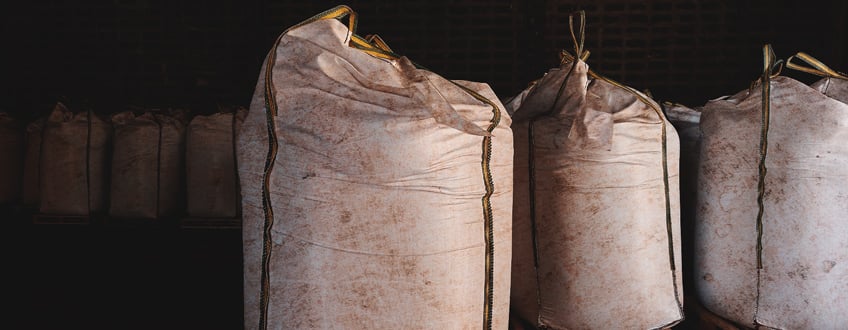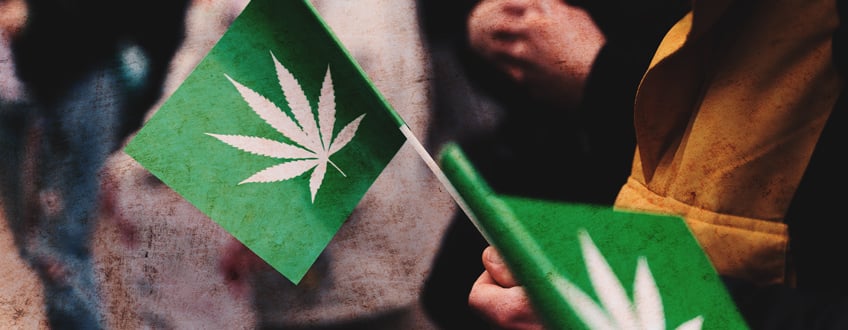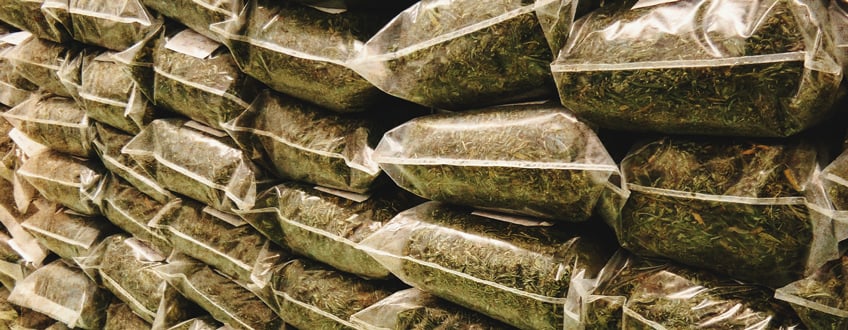.

Five Ways Legal Cannabis Can Change the World
Legal cannabis will allow millions of people to smoke in peace. But freeing the herb offers many other impressive benefits. Find out how legal cannabis can create a surge in the economy, reduce crime rate, and even help to change our understanding of medicine and human physiology. These are the top 5 ways legal weed will change the world.
How long have you used weed for? If you’re relatively new to the world of cannabis, then the sight of dispensaries, cannabis prescription cards, and legal growers flaunting their harvests on social media are probably quite normal for you.
If you’ve smoked cannabis for 15 years or more, these recent happenings are probably a lot more impressive and significant. You’ve seen a marijuana revolution take place before your eyes.
We’ve gone from worldwide prohibition to sweeping reform in less than a decade. Many countries now have a legal cannabis market, and a handful even boast recreational retailers and allow citizens to grow their own at home.
Sure, we still have a long road ahead in terms of everyone enjoying access to cannabis. The opportunity to use the herb recreationally without persecution excites millions of people across the world. But cannabis offers much more than just an enjoyable psychoactive experience.
Contents:
Top 5 Ways Legal Weed Can Change the World
As perhaps the most versatile plant on Earth, comprehensive legalization of cannabis will come with a host of benefits.
The herb has the potential to transform medicine, help heal the environment, reduce crime and addiction, and catapult the economy to new heights.
Of course, a cannabis revolution will bring more than just these benefits. But the list below highlights perhaps the most important ways legalization can help the world and its inhabitants.
1. Progress in Medical Cannabis
Humans have used cannabis holistically for thousands of years. Practitioners in ancient China used the herb, which they called "má", as did those in ancient India.
It’s no accident that cannabis appears all throughout historical documents concerning medicine. While the ancients may have pinned the healing prowess of cannabis on its magical and spiritual qualities, scientists of the modern era have discovered exactly what makes the plant so effective.
Pioneers in the world of cannabis, including Raphael Mechoulam (the man who isolated THC), worked for decades to put pieces of a biological puzzle together. Eventually, they came across a series of receptors and signalling molecules that they named the endocannabinoid system (ECS).
Initially, they found cannabis phytochemicals such as THC to produce their effects by interacting with this system. But it turns out the ECS fulfils much more important functions than simply facilitating a high. This body-wide network governs numerous essential physiological processes.

Known as our universal regulator[1], the ECS helps to keep the body in a state of balance, or homeostasis. This vital mechanism may help to explain why research continues to uncover the potential of cannabis in many health conditions[2].
Unfortunately, years of prohibition mean we’re decades behind where we should be in terms of ECS research. However, following several “weed revolutions” in places around the world, more scientists are free to explore this subject area.
Some academics currently view the ECS as more than just a therapeutic target for disease treatment; they see it as a system that requires care and nourishment.
Health-conscious people consider all bodily systems when it comes to their lifestyle choices. They run to keep their cardiovascular system healthy, take probiotics to keep their digestive system in check, and consume an array of supplements to keep their immune system functioning optimally.
In the future, as cannabis legalization continues to gain traction, we’ll likely take a similar approach to the ECS. Cannabis contains over 100 cannabinoids that interface with this system in different ways, and most of them are non-psychotropic. As research continues and scientists discover the benefits of the lesser-known members of this large chemical family, many more cannabinoids are on track to gain a similar status to CBD.
Papers have also explored how foods, exercise, and other modalities can help us feed the ECS[3]. These lifestyle approaches are poised to surge in popularity as the marijuana revolution marches on.
2. Renewable Resources and Bioremediation
Humans have used cannabis as an industrial crop for thousands of years to create products such as paper, rope, and food. To clear things up from the get-go, cannabis and hemp are the same species.
The term "hemp" usually refers to plants with a low THC content primarily used for their fibre and seeds, whereas "cannabis" commonly refers to plants with higher levels of THC. However, many cannabis strains also contain high levels of CBD and very little THC.
In Europe, most countries define hemp plants as containing less than 0.2% THC. Many nations across the world allow farmers to grow hemp but prohibit cannabis cultivation. For example, the United Kingdom is seriously lagging behind when it comes to cannabis laws. The government allows farmers to grow hemp, but only for fibre and seeds; they are forced to destroy the flowers and leaves. China and Russia also grow massive amounts of hemp, while outlawing cannabis.
However, we should still celebrate the spread of the hemp industry across nations. This versatile plant offers a means to produce more sustainable forms of paper, rope, fuel, and other important resources.

-
Kinder to the Planet
Growing hemp means fewer pesticides. Te plant boasts an impressive resistance to a lot of insects that farmers typically douse with chemicals. These substances also kill beneficial insects and pollinators, and end up in the water and surrounding ecosystem.
-
Hemp Seeds
Many farmers grow hemp for its seeds. They offer a pleasant nutty taste and are packed with nutrients[4], including:
| Fatty acids | Protein |
| Amino acids | Vitamin E |
| Minerals including potassium, iron, and zinc |
| Fatty acids | Protein | Amino acids |
| Vitamin E | Minerals including potassium, iron, and zinc |
-
Bioremediation
Hemp can even help to clean up poor-quality soil. Poor agricultural practices and pollution have left areas of farmland and wild regions in a mess, but hemp can help us solve these issues. The plant has the ability to remediate land by removing heavy metals such as lead, cadmium, and nickel from soil contaminated by nuclear meltdowns and sewage leaks.
-
Eco-Friendly Products
Manufacturers can use hemp to make 25,000 different products. Because hemp requires less nasty chemicals to grow and helps to heal the soil, it beats other industrial plants when it comes to environmental impact. Some of these hemp-based products include:
| Clothing | Construction materials |
| Plastic composites | Body care products |
| Paper | Rope |
| Biofuel |
| Clothing | Construction materials | Plastic composites | Body care products |
| Paper | Rope | Biofuel |
3. Reduction in Violent Crime and Opioid Use
We can almost guarantee that you’ve heard someone utter this sentence during a smoking session with friends: “If everyone just smoked weed, the world would be a better place”. You’ve probably also heard one of your pals make the observation that drunk people seem to fight all the time, while people that smoke weed just want to chill.
Although idealistic, these thoughts aren’t far off the mark. Some evidence suggests that cannabis reform brings the benefit of a reduction in violent crime.
A paper published in the Journal of Economic Behaviour & Organisation explored the drop in crime following the legalization of recreational cannabis[5] in Washington in 2012 and Oregon in 2014. Overall, they found the policy led to a significant reduction in rapes, property crimes, and the consumption of alcohol and hard drugs.
The authors of the paper proposed four main mechanisms that caused this shift to occur:
- The direct psychotropic effect of cannabis
- People substituting violence-inducing substances for cannabis
- The reallocation of police time and resources away from cannabis offences
- The reduction of the cannabis black market
As well as affecting crime rate, cannabis legalization has also led to a reduction in overdose-related deaths associated with hard drugs. Ongoing investigations are exploring if cannabis can help to reduce opioid use[6] in adults experiencing chronic pain.
Interestingly, access to legal cannabis appears to reduce opioid-related deaths[7]. A paper published in the British Medical Journal found a decrease in opioid-related mortality rates alongside the increased number of medical and recreational cannabis dispensaries.
The authors of the paper found that an increase from one to two cannabis outlets in a county tended to result in an estimated 17% decrease in opioid-related deaths.
4. Economic Impact
Cannabis is big business, and we mean big. A Euronews report claimed that Europeans spent at least €11.6 billion on cannabis in 2017 alone. While cannabis remains illegal, countries are missing out on enormous amounts of taxable exchanges.
However, some nations and states have realised the economic benefits of cannabis and acted on this logic. Colorado serves as a fantastic case study for the economic boom that follows cannabis legalization. The state generated over $135 million in cannabis taxes and fees in 2015. Naturally, the availability of legal cannabis led to an all-time high of tourists visiting the state in the same year. The local weed revolution has also led to an increase in jobs in the state, from growers and budtenders to security teams, accountants, and construction workers.
Outside of Colorado, legal cannabis continues to benefit the United States as a whole. A 2019 report found that the cannabis industry directly employed 211,000 full-time workers.

5. Research and Development
We’ve only just started to develop a firm understanding of the cannabis plant and how it works in the human body. Legalization has freed up scientists to study the physiological effects of cannabis and allowed breeders to develop new cannabinoid and terpene profiles.
A thorough understanding of the cannabis plant remains one of the biggest benefits of cannabis legalization. Any development within the field of research ripples out into the other facets of the cannabis world mentioned above. These advances stimulate a more informed approach to medicinal cannabis and the applications of hemp, which then results in the production of more products, more jobs, and a thriving marketplace.
Below are some of the developments being made in cannabis research, which are paving the way to a more educated cannabis community at large.
-
No More Strains?
Cannabis terminology has changed dramatically in the last few decades, even the last couple of years. Of course, it takes a while for research findings to trickle out into the mainstream, but you can expect to see these changes emerge very soon.
One example is the dissolution of the indica–sativa strain binary. For a long time, indica and sativa have been used to categorise strains according to their effects. However, the respected cannabis researcher and neurologist Dr Ethan Russo has described the term "strain" as "nonsense", and states it should be reserved for bacteria and viruses.
The term "cultivar" more accurately characterises types of cannabis. But even this word has limitations when it comes to describing the effects of a strain. The truth is, levels of terpenes and cannabinoids can vary within the same strain based on environmental factors.
While loose terms may work fine when it comes to marketing and recreational use, researchers are calling for a new classification system for cannabis. The term “chemovar” (chemical variety), they argue, will help users identify and purchase the desired product.
By viewing cannabis through a chemovar lens, dispensaries may do away with strain types altogether. Instead, marketing chemovars based on their chemical components will help both patients and recreational users locate the perfect product for their specific needs.

-
Novel Cannabinoids, Terpenes, and the Entourage Effect
The legal marijuana revolution will help us truly tap into the phytochemical potential of the cannabis plant. We know weed flowers contain over 100 cannabinoids and 200 terpenes, alongside many other poorly understood constituents. Researchers have barely scratched the surface of cannabis pharmacology.
Cannabinoids such as CBG, CBC, CBN, and many others show promise in early research. In recent years, we've also seen a big switch of focus onto terpenes. While cannabinoids such as THC and CBD produce the core effects of the herb, researchers have found that terpenes play a fundamental role in the overall effects.
Dr Russo also helped to popularise the idea of the “entourage effect”[8]. This term describes the synergistic effect between cannabinoids and terpenes. Legal cannabis has created a playground that allows users to mix, match, and experiment with these compounds to achieve the best results.
-
Tailored Genetics
As our understanding of cannabis phytochemicals and endocannabinoid system physiology increases, so too does our ability to tailor products to a user’s needs. For example, researchers have already created strains that express 100% of their cannabinoid profile as CBG, a non-psychotropic cannabinoid.
By harnessing these developments in cannabis breeding, researchers believe that patients can use tailored cannabis varieties with specific levels of cannabinoids, terpenes, and other phytochemicals to benefit their conditions. Of course, this pioneering approach to breeding will certainly cross over into the recreational world of weed as well.
Cannabis legalization has the potential to usher in positive change across many aspects of life. And with countries around the world finally loosening restrictions on the herb, it’s never been a more exciting time to watch this space.
- The Endocannabinoid System, Our Universal Regulator https://www.jyi.org
- Modulating the endocannabinoid system in human health and disease https://febs.onlinelibrary.wiley.com
- Care and feeding of the endocannabinoid system: a systematic review of potential clinical interventions that upregulate the endocannabinoid system - PubMed https://pubmed.ncbi.nlm.nih.gov
- 6 Evidence-Based Health Benefits of Hemp Seeds https://www.healthline.com
- Crime and the legalization of recreational marijuana - ScienceDirect https://www.sciencedirect.com
- Medical Marijuana and Opioids (MEMO) Study https://bmjopen.bmj.com
- Association between county level cannabis dispensary counts and opioid related mortality rates in the United States https://www.bmj.com
- Taming THC: potential cannabis synergy and phytocannabinoid-terpenoid entourage effects https://www.ncbi.nlm.nih.gov








































